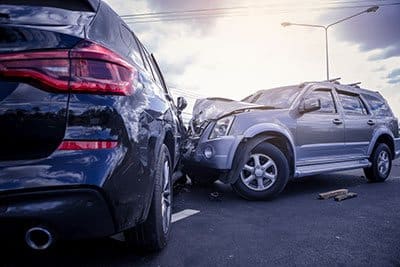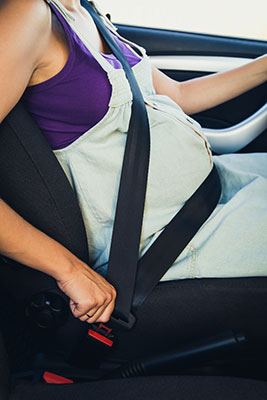As a pregnant woman, you may find yourself faced with an unexpected crisis if you're involved in a car crash.
Dealing with the physical and emotional trauma of being the victim of such an incident can be overwhelming, especially during your pregnancy. But it's important to know that there are steps you can take to ensure your safety and protect your and your baby's wellbeing.
This blog post covers what to do if you're ever involved in a car crash during pregnancy, from gathering evidence at the scene to speaking with a doctor afterward. All advice from experienced parents who have already navigated through this challenging situation!
More...
Take Away Key Points:
Table of Contents
- Pregnant women & car accidents: All you need to know
- 1. What are the risks of suffering a car accident while pregnant?
- 2. Car crash and miscarriage
- 3. Possible pregnancy complications after the car accidents
- 4. Pregnancy-risk symptoms to look for in a car accident
- 5. Safety tips to protect you & your unborn baby safe in the car crash
- 6. What can pregnant women do after a car accident?
- 7. Compensation for injuries suffered by pregnant women in the car accident
- Frequently Asked Questions
- Summary
Pregnant women & car accidents: All you need to know
If you're an expectant mother, car crashes are a major source of fear while on the road. You may suffer from severe pain and injuries and, eventually, lose your baby. But this is the worst scenario, so we will explain thoroughly how to avoid it while driving.
1. What are the risks of suffering a car accident while pregnant?

Placental abruption is the most common injury in car accidents during pregnancy, occurring when the placenta detaches from the uterus wall before birth. This injury happens in 5% of low-impact crashes and 30-50% of high-impact collisions.
Other rarer risks may include uterine rupture or shock due to severe blood loss. Still, direct fetal injury is uncommon, given that the womb offers plenty of protection and insulation.
According to a study published in the American Journal of Lifestyle Medicine, roughly 92,500 pregnant women experience injuries from car crashes each year in the US. In addition, factors such as overall fatigue, nausea, and changes to the brain due to pregnancy can increase those risks.
2. Car crash and miscarriage
Miscarriage is a potential outcome of car accidents during pregnancy, with placental abruption possible in 5% of low-impact crashes. Even after a couple of weeks have passed, these incidents may still lead to miscarriage, even if the link between the two is not always documented.
A University of Michigan study reveals that proper use of a seat belt can prevent 84% of serious fetal outcomes such as disability or death from car accidents, with 62% of pregnant women who experienced these serious results not having buckled up.
3. Possible pregnancy complications after the car accidents
Suppose you're a pregnant woman involved in a traffic collision. In that case, the increased risk of severe injuries or fatal movement on your child's behalf will depend on your pregnancy's phase and the crash characteristics' severity. Severe car crashes are more likely to cause severe or fatal injuries than minor low-impact accidents.
Some of the most common maternal injury types from being involved in a car accident while pregnant involve the following:
- Miscarriage
- Pre-term labor and emergency C-section
- Severe bleeding, including both internal and external types
- Birth defects
- Internal bleeding
- Preeclampsia
- Stillbirths
- Maternal shock: Occurs when expectant mothers lose too much blood that the heart cannot function properly. As a result, the body will redirect nutrients and blood away from the baby to the pregnant mother, jeopardizing the baby.
- Contrecoup injuries: Occur when expectant mothers are violently forced in one direction before abruptly snapping back in the other direction. It also includes when your head strikes a stationary object. The high-risk pregnancy injury stresses the mother's body and might harm the baby.
- Placental disruption: This permanent injury occurs in the mother's abdomen when the placenta prematurely detaches from the wall of the uterus. These car accident injuries will put your baby in extreme danger and can lead to fetal death. In addition, the injuries require immediate medical attention to avoid miscarriage.
- Uterine rupture: The pregnancy-risk injury occurs when a car accident causes a spontaneous uterus tear. The risks require immediate medical attention. The baby must be delivered immediately to avoid death or permanent injury. Such car crash injuries are fatal to the unborn child in nearly all instances.
4. Pregnancy-risk symptoms to look for in a car accident
If you're a pregnant woman involved in a car accident while pregnant, there are multiple warning signs to look for to check whether something is wrong with your unborn child:
- Pain in your pelvic region
- Any fluid discharging from your vagina
- Vomiting that is not related to morning sickness
- Any change or cessation in the fetal movement
- Losing consciousness after or during the car accident
- Bleeding from your vagina
- Facial swelling
- Chills or fever
- Severe headaches
- Abdominal pain
These symptoms could indicate possible injuries to the mother, unborn baby, or both. Therefore, a pregnant woman must seek emergency medical care immediately and call the obstetrician if they experience any of these symptoms to avoid other complications and keep her unborn baby safe.
5. Safety tips to protect you & your unborn baby safe in the car crash

Most women must keep driving during their pregnancy. Driving for family, school or work, and other reasons is often necessary, but a leading cause of motor vehicle crashes with fatal injuries for babies and mothers.
If you must travel in a car while pregnant, especially in the second trimester, third trimester, or later stages of pregnancy, pay attention to the following factors:
- Wearing the seat belt properly. Position the lap belt under your hips and the abdomen. You will prevent the seat belt from constricting your baby if you're in a crash. Place the shoulder belt regularly across your chest and above the abdomen.
- Never deactivate your airbags. The airbags in your car must work together with the seat belt system. The safety systems will keep your body secure and stable in a car accident. So, do not turn the airbags off.
- Move your seat away from the car's steering wheel while on the road. A pregnant woman must do everything possible to avoid being pressed into the steering wheel in a car accident.
6. What can pregnant women do after a car accident?
If you are involved in a car accident while pregnant, below you can find the steps to ensure the best chance of recovering compensation:
- Stick to your doctor's orders precisely as they're given. Regardless of being involved in minor accidents or major car crashes, following your doctor's prescriptions will avoid permanent injury and ensure financial recovery from high or low-impact car accidents. A study showed that 62% of mothers were not wearing seat belts, which resulted in fatal outcomes.
- Save all your pay stubs, bills, and medical records, bills, and pay stubs. This evidence is essential in helping pregnant women determine the nature of their injuries and offers a record of their financial losses in a high or low-impact car accident.
- Preserve all the evidence you can from the car accident scene. If possible, feel free to take pictures and remember as many details as possible about the car accident.
- Write a journal to supervise and examine your daily pain levels. To get compensation for the pain they suffer in a car accident while pregnant, pregnant women should show how their injuries have impacted their everyday life. Writing down the car accident details helps preserve the data for future reference.
- Search for help from a car accident attorney. The sooner parents talk to an attorney, the faster the experts will help you in the case and demand the compensation you deserve. In addition, the free consultation will help you understand your legal rights. For example, in some states (Texas), pregnant women can file a wrongful death lawsuit. Parents will file a wrongful death claim for the loss of their baby at any point during the pregnancy, as long as the loss of the unborn child was caused by medical malpractice or the mother herself. Understanding your legal options will help you determine your next steps. Contacting your insurance company will also be beneficial for further steps.
7. Compensation for injuries suffered by pregnant women in the car accident
When you're involved in a car accident during pregnancy, and the other at-fault driver is guilty of the crash, even if they are minor fender-benders, the other driver should compensate for the following factors:
- Your medical expenses
- Emotional pain and anguish
- The physical pain you've suffered
- Lost wages
- Costs of future medical care you or your child might need
Frequently Asked Questions
Can a pregnancy survive a car crash?
Yes, but 5% of pregnancy risks end up fatally, causing miscarriage even in minor fender-benders.
Can a car accident cause miscarriage in early pregnancy?

Yes, a car accident can cause miscarriages in women suffering from accident traumas.
Can a car accident cause brain damage to the fetus?
Yes, a car accident might cause brain damage to the fetus, leading to fatal results.
How many pregnancies are lost due to car accidents?
3,000 to 5,000 pregnancies are lost due to car accidents every year.
Is driving dangerous during pregnancy?
No, driving is not dangerous during pregnancy as long as you obey seat belt rules and are comfortable driving safely. But, if your doctor urges you not to drive, you must listen to the instructions.
Summary
Car crash during pregnancy is more common than you imagine, so you must follow precise instructions to keep you and your little one safe on the road.
One mistake is enough to end fatally, and you must perform safety standards to avoid high risks of injuries and death.
